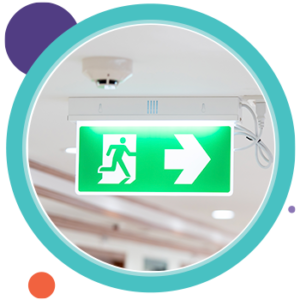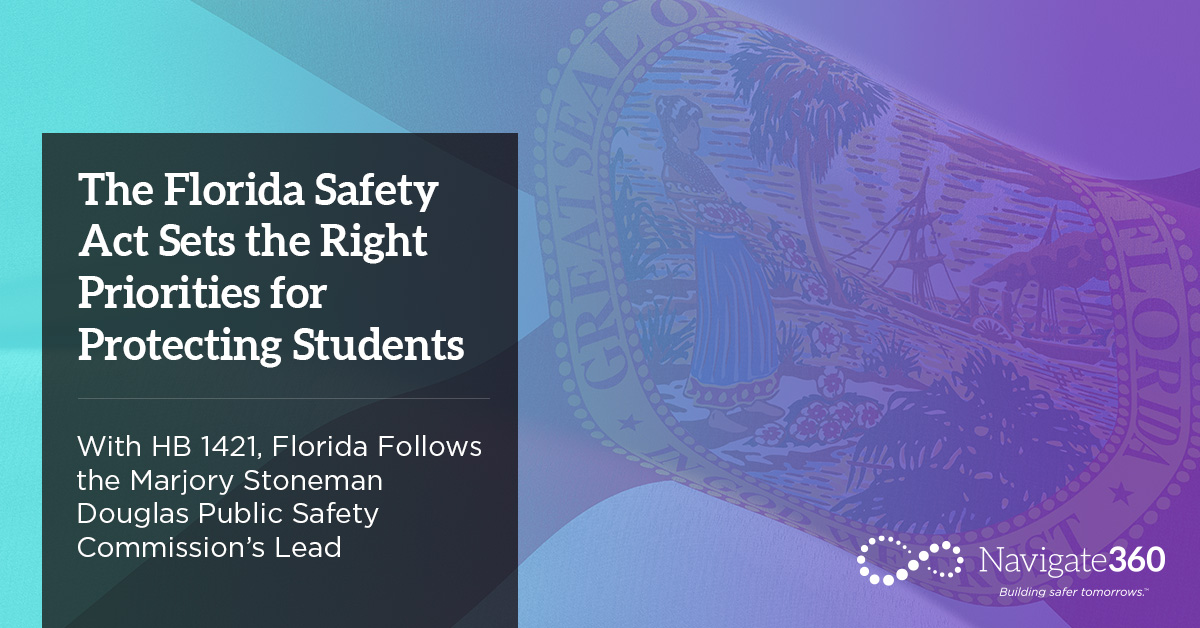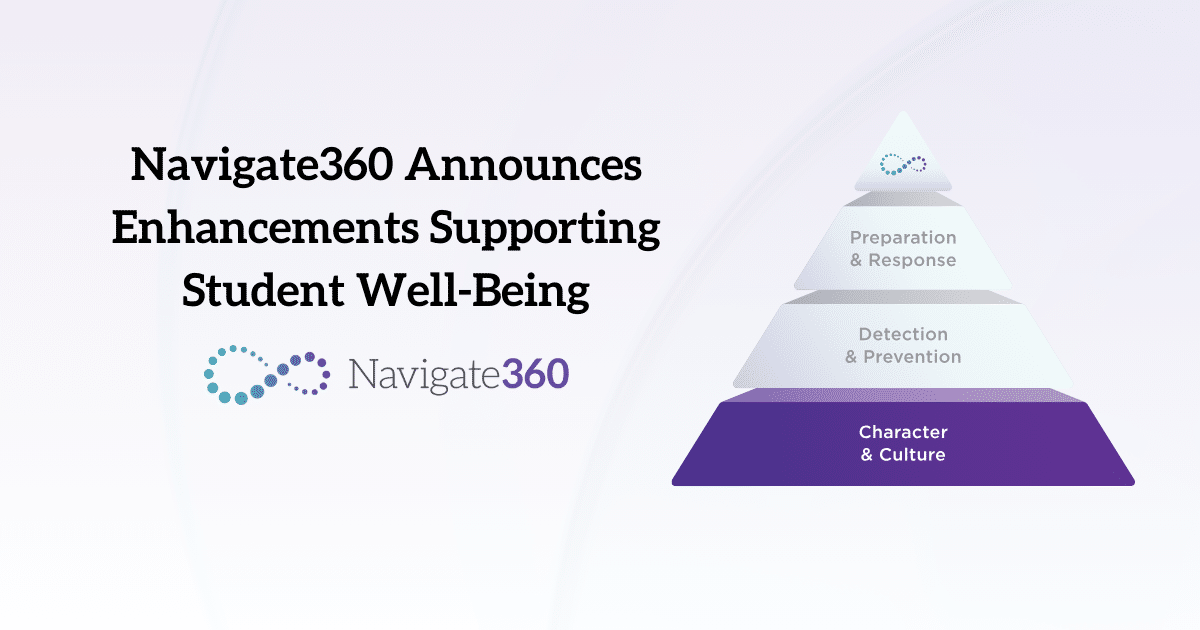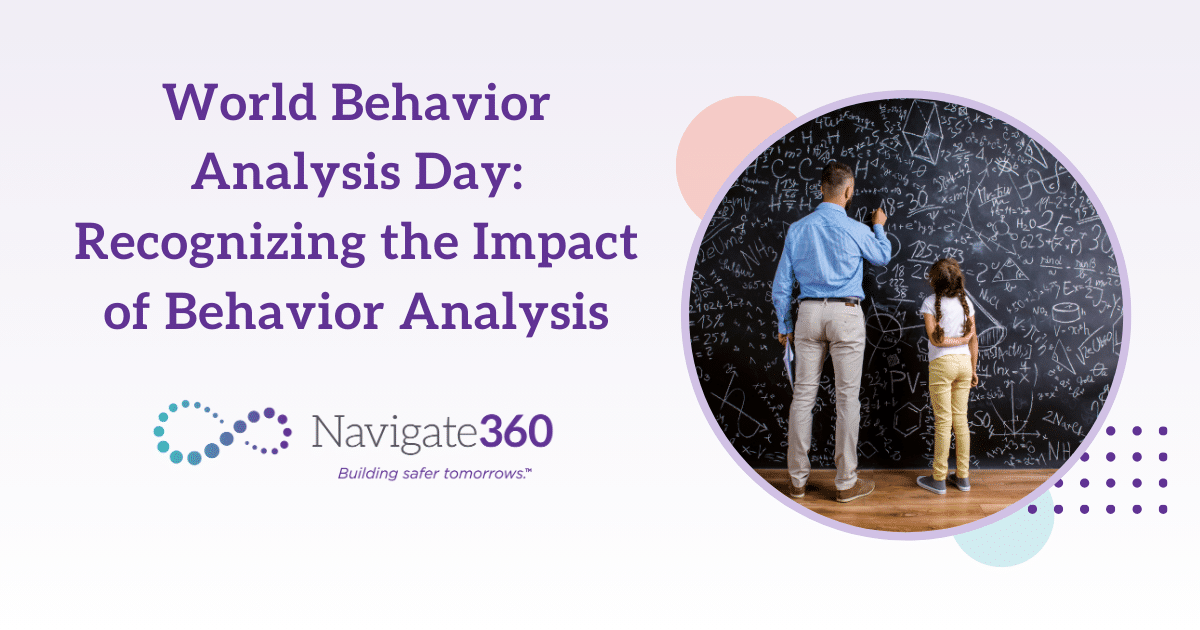With FL HB 1421, the State Follows the Marjory Stoneman Douglas Public Safety Commission’s Lead
“Every parent deserves to know their child is safe at school. This new law is an important next step in providing school safety assurances to families and students. Florida will continue to do everything possible to make sure our schools meet the highest safety standards and that mental health issues associated with school violence are being addressed.”
– Tony Montalto, President, Stand with Parkland
For anyone who believes that students and educators deserve mental health support and the utmost in school violence prevention and intervention, there’s much to celebrate in the signing and implementation of the Florida Safety Act (FL HB 1421). As a longtime district administrator and 23-year veteran of Florida education who supervised prevention and intervention teams, I’ve seen firsthand the need for the actions this law addresses.
 The driving force behind this law is the 2018 Marjory Stoneman Douglas Public Safety Act, passed after 17 people were killed and 17 others injured in a shooting at a high school in Parkland, Florida. Now with the additional challenges school and district leaders are facing — from the impacts of COVID-19 to a rise in concerning student behaviors and staff retention — the increased clarity and simplification provided by FL HB 1421 are positive steps forward. The law shores up much-needed mental health training and intervention supports, as well as threat assessment team training and school safety gaps. It also updates compliance provisions and clarifies expectations for public schools, charter schools and local municipalities (including law enforcement agencies).
The driving force behind this law is the 2018 Marjory Stoneman Douglas Public Safety Act, passed after 17 people were killed and 17 others injured in a shooting at a high school in Parkland, Florida. Now with the additional challenges school and district leaders are facing — from the impacts of COVID-19 to a rise in concerning student behaviors and staff retention — the increased clarity and simplification provided by FL HB 1421 are positive steps forward. The law shores up much-needed mental health training and intervention supports, as well as threat assessment team training and school safety gaps. It also updates compliance provisions and clarifies expectations for public schools, charter schools and local municipalities (including law enforcement agencies).
Researchers who have studied mass shootings in the past decade say there are often patterns of detectable warning signs in behavior. To improve each school’s ability to accurately identify these warning signs and provide support to those who might be experiencing a mental health crisis, the law mandates that at least 80% of school personnel are trained in youth mental health awareness and assistance.
FL HB 1421 also requires each school district to establish policies and protocols related to threat assessment teams and their training. Threat assessment teams are composed of teachers, school guidance counselors, school resource officers, mental health professionals and school administrators. Effective training ensures these teams are prepared to follow a predetermined process to accurately assess and intervene if anyone displays behaviors that pose a threat to themselves or others.
 Florida school threat assessment processes must be aligned with the new custom threat management model. With this training, threat assessment teams will be better prepared to reliably assess a student’s risk level, intervene before warning signs escalate and identify the most appropriate interventions to support students’ mental health and emotional needs.
Florida school threat assessment processes must be aligned with the new custom threat management model. With this training, threat assessment teams will be better prepared to reliably assess a student’s risk level, intervene before warning signs escalate and identify the most appropriate interventions to support students’ mental health and emotional needs.
When young people’s mental health needs are met, overall school climate improves and rates of violence are reduced, resulting in improved student instruction, academic success and better graduation rates. Students’ behavioral risk needs can be met through pro-character education curriculum combined with wraparound services and interventions. This holistic approach addresses not only mental and emotional health; it also decreases the threat of schoolwide crisis situations, injury, substance abuse/misuse, child sexual abuse and exploitation, and student behavior incident violations.
Other provisions in FL HB 1421 are geared toward ensuring consistency in the reporting of school safety incident data and the timing and frequency of emergency drills, including requiring the law enforcement agency responsible for responding to the school in the event of an assailant emergency be physically present to participate during the drill exercise. As districts recalibrate to ensure policies and procedures are in alignment with the law, the FLDOE Office of Safe Schools (OSS) has been established as a central repository for best practices and training standards, as well as compliance oversight in all matters regarding school safety and security, prevention and intervention efforts, and emergency preparedness planning.
 The requirements of FL HB 1421 complement prior legislative actions such as Alyssa’s Law, which mandates public schools be equipped with silent panic alarms that are directly linked to law enforcement. Through the OSS model family reunification plan, districts will be able to eliminate communication barriers with law enforcement agencies and local governments because they are partnering with the district in the plan’s development. Furthermore, highlighting the need for an integrated student information and notification system will only improve family reunification processes during a crisis. This initiative will produce a predetermined and shared plan that uses everything from social media to daily attendance records to account for every child. Cloud-based solutions with direct connection to first responders like Navigate360’s Safety & Security Suite provide schools with needed reassurance that they have a solution that’s integrated with the school’s student information system. Experts say this is one of the FL HB 1421’s most important contributions. Sadly, we know from experience how heart-wrenching the minutes and hours after a crisis can be for families.
The requirements of FL HB 1421 complement prior legislative actions such as Alyssa’s Law, which mandates public schools be equipped with silent panic alarms that are directly linked to law enforcement. Through the OSS model family reunification plan, districts will be able to eliminate communication barriers with law enforcement agencies and local governments because they are partnering with the district in the plan’s development. Furthermore, highlighting the need for an integrated student information and notification system will only improve family reunification processes during a crisis. This initiative will produce a predetermined and shared plan that uses everything from social media to daily attendance records to account for every child. Cloud-based solutions with direct connection to first responders like Navigate360’s Safety & Security Suite provide schools with needed reassurance that they have a solution that’s integrated with the school’s student information system. Experts say this is one of the FL HB 1421’s most important contributions. Sadly, we know from experience how heart-wrenching the minutes and hours after a crisis can be for families.
Finally, FL HB 1421 ensures continuous checks and balances by extending the Marjory Stoneman Douglas High School Public Safety Commission by three years, to 2026. This commission oversees the implementation of school safety measures and investigates system failures regarding school shootings while developing recommendations for improvements. With this law, Florida schools will now have the tools, resources and oversight to ensure the needs of students are met.
Next Steps
Whole-child safety takes the whole community. Schools, communities, law enforcement agencies and solution providers must work better together to ensure every student feels safe – physically, socially and emotionally – within their school environment.
With an ecosystem of holistic safety and wellness in place, K-12 schools are in a better position to promote the long-term development and success of children. Learn more about the steps you can take to comply with the Florida Safety Act with the HB 1421 Analysis & Solutions Guide, and contact us to begin the process of enhancing your school’s safety and security plans today.




